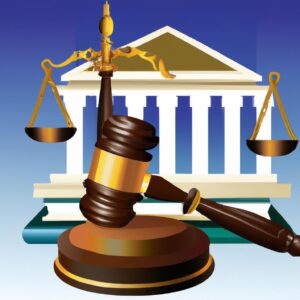When considering the distribution of assets through a last will and testament, individuals may assume that all property is fair game for inclusion. However, there are certain types of property that cannot be left in a will, leaving many individuals unaware of the limitations on estate planning. In this article, we will explore the nuances of what property can and cannot be included in a will, shedding light on important considerations for effective estate planning. As experienced lawyers in estate planning at Morgan Legal Group in New York City, we aim to provide valuable insight into navigating the complexities of asset distribution.
Ineligible Property for Inclusion in a Last Will and Testament
- Certain types of property cannot be included in a Last Will and Testament due to legal restrictions and other considerations. It is important to be aware of what property is ineligible for inclusion in a will to ensure that your estate planning is done correctly.
- Here are some examples of property that cannot be included in a will:
| Property Type | Reason |
|---|---|
| Jointly owned property with rights of survivorship | Passes directly to the co-owner upon death |
| Beneficiary designated assets (e.g. life insurance policies, retirement accounts) | Pass outside of probate to the named beneficiary |
| Property held in a trust | Controlled by the terms of the trust, not the will |
- It is crucial to consult with an experienced estate planning attorney to ensure that your will accurately reflects your wishes and that all of your property is properly accounted for. Failure to do so could result in unintended consequences and disputes among your loved ones after you pass away.
- By understanding what property cannot be included in a will, you can make informed decisions about your estate planning and take the necessary steps to protect your assets and provide for your beneficiaries.

Understanding Probate Restrictions on Certain Assets
When it comes to estate planning, it’s crucial to understand the restrictions that can impact certain assets. Probate restrictions exist for various reasons, such as to protect the rights of heirs and creditors, ensure proper distribution of assets, and prevent potential disputes. While many assets can be included in a will, there are some types of property that cannot be transferred through this legal document.
Assets that typically cannot be included in a will include:
- Jointly Owned Property: Assets owned jointly with the right of survivorship automatically pass to the surviving co-owner upon the other owner’s death.
- Roth IRAs and 401(k) accounts: These types of retirement accounts have designated beneficiaries and are not subject to probate.

Navigating the Complexities of Non-Probate Assets
When it comes to estate planning, it is crucial to understand the complexities of non-probate assets. These assets do not pass through a will and are not subject to probate court proceedings. It is essential to have a comprehensive understanding of what types of property cannot be included in a will to ensure that your final wishes are properly executed.
Non-probate assets typically include:
- Jointly Owned Property: Property owned jointly with rights of survivorship will automatically pass to the surviving owner.
- Retirement Accounts: Assets held in retirement accounts such as IRAs and 401(k)s will pass directly to the designated beneficiary.
- Life Insurance Policies: Proceeds from life insurance policies will go directly to the named beneficiary.

Best Practices for Properly Distributing Assets Outside of a Will
In order to properly distribute assets outside of a will, it is important to understand what types of property cannot be included in a will. Some assets do not pass through probate and therefore cannot be distributed through a will. It is crucial to take these assets into consideration when creating an estate plan to ensure that your wishes are carried out effectively. Here are some property types that cannot be included in a will:
- Joint Tenancy assets: Property owned in joint tenancy automatically passes to the surviving joint tenant upon death and cannot be distributed through a will.
- Assets with designated beneficiaries: Assets such as life insurance policies, retirement accounts, and bank accounts with payable-on-death designations pass directly to the designated beneficiary and are not governed by a will.
It is important to review your estate plan regularly to make sure that all of your assets are properly accounted for and that your wishes are accurately reflected. Consulting with an experienced estate planning attorney can help ensure that your assets are distributed according to your wishes and that you have a comprehensive plan in place for your loved ones. By understanding the limitations of a will and properly planning for the distribution of assets outside of a will, you can ensure that your estate is managed efficiently and that your loved ones are taken care of.
Q&A
Q: What property can you not leave in a will?
A: While a will allows you to distribute your assets according to your wishes, there are certain types of property that cannot be included.
Q: What are some examples of property that cannot be left in a will?
A: Generally, you cannot leave property that is jointly owned with someone else, life insurance policies with designated beneficiaries, retirement accounts with named beneficiaries, and assets held in a trust.
Q: Can you include digital assets in a will?
A: Yes, you can include digital assets such as email accounts, social media profiles, and online accounts in your will. It’s important to provide clear instructions for handling these assets to your executor.
Q: Are there any restrictions on leaving business interests in a will?
A: Business interests can be included in a will, but it’s important to consider the implications for the operation of the business and the rights of other shareholders or partners. It may be better to plan for the succession of the business through other means such as a buy-sell agreement.
Q: Can you leave debts in a will?
A: Debts cannot be left in a will, as they are typically settled from the deceased person’s estate before any assets are distributed to beneficiaries. It’s important to address any outstanding debts during the estate planning process to avoid complications for your loved ones.
In Conclusion
In conclusion, it is important to consider which assets cannot be included in your will to ensure your final wishes are carried out effectively. By understanding the limitations of estate planning, you can make informed decisions and protect your loved ones from any potential complications. Remember, some things are better addressed through other legal mechanisms, so seek advice from a professional to navigate the complex world of estate planning successfully. Thank you for reading and may your estate planning journey be smooth sailing ahead.








